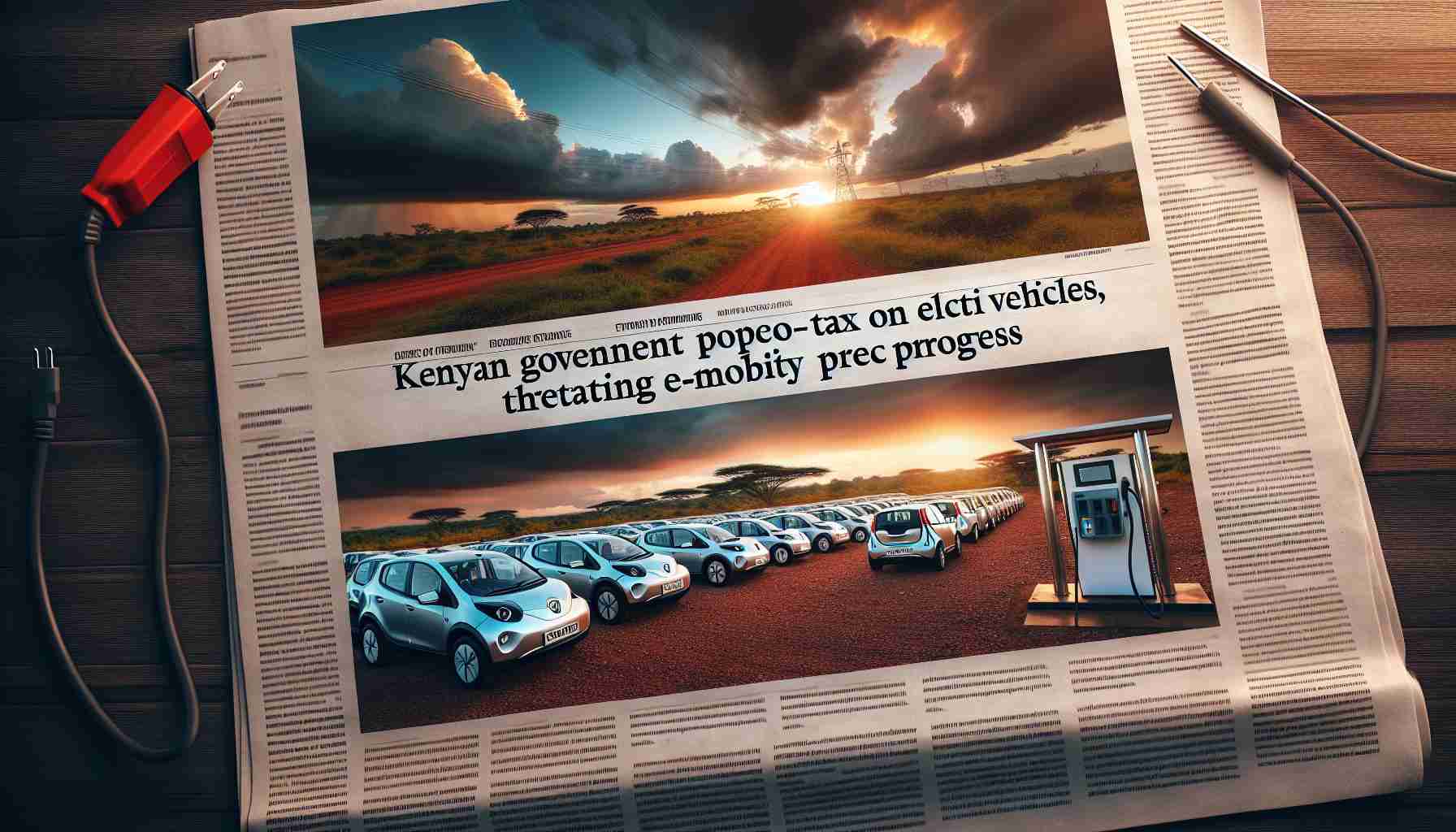The Kenyan government’s plan to introduce an eco-tax on electric bikes, buses, and solar and lithium-ion batteries could have a detrimental impact on the country’s e-mobility sector. The proposed Finance Bill 2024 contradicts the objectives of Kenya’s draft e-mobility policy, which aims to promote local manufacturing of electric vehicles (EVs) and support battery recycling efforts.
The Africa eMobility Alliance has criticized the proposed taxes, warning that they send a negative signal to the industry. If implemented, the taxes may lead consumers to opt for older, fuel-inefficient vehicles instead of EVs, undermining efforts to reduce carbon emissions and combat climate change.
Kenya’s EV market has been steadily growing, with the number of registered electric vehicles, including e-bikes and e-buses, increasing from 475 units in the previous year to 2,694 in 2023. This positive trend has been supported by incentives aimed at making EVs more affordable, such as the introduction of green-colored license plates for EVs.
However, the introduction of the proposed eco-tax could reverse this progress. The cost of a 60-kilogram solar battery, for example, would increase by $312, making renewable energy solutions less accessible to consumers.
The CEO of Associated Battery Manufacturers, Guy Jack, warns that these taxes are completely unsustainable and could lead to job losses in the sector. The e-mobility industry in Kenya has already attracted significant capital financing, with startups raising over $52 million, the highest in Africa.
It is crucial for the Kenyan government to reconsider the implementation of the eco-tax and ensure that policies align with the goals of promoting local manufacturing, reducing carbon emissions, and advancing sustainable transportation. By providing continued incentives and support for the e-mobility sector, Kenya can maintain its positive trajectory and contribute to a greener and more sustainable future.
The Kenyan e-mobility sector has been experiencing steady growth in recent years, with a significant increase in the number of registered electric vehicles. In 2023, the number of electric vehicles, including e-bikes and e-buses, reached 2,694 units, compared to just 475 units in the previous year. This growth has been supported by various incentives, such as the introduction of green-colored license plates for EVs, aimed at making electric vehicles more affordable and attractive to consumers.
However, the proposed eco-tax on electric bikes, buses, and solar and lithium-ion batteries could have a detrimental impact on the industry. The Africa eMobility Alliance has voiced its concerns, stating that these taxes send a negative signal to the market and may discourage consumers from opting for electric vehicles. Instead, consumers may choose older, fuel-inefficient vehicles, which would undermine efforts to reduce carbon emissions and combat climate change.
One of the key issues with the proposed taxes is their potential to make renewable energy solutions less accessible to consumers. For example, the cost of a 60-kilogram solar battery would increase by $312 if the eco-tax is implemented. This could deter individuals and businesses from investing in renewable energy solutions, hindering the country’s progress towards a more sustainable future.
The CEO of Associated Battery Manufacturers, Guy Jack, has raised concerns about the sustainability of these taxes and the potential job losses they could cause in the e-mobility sector. Kenya’s e-mobility industry has attracted significant capital financing, with startups raising over $52 million, making it the highest in Africa. Implementing taxes that contradict the goals of promoting local manufacturing and supporting battery recycling efforts could hamper the industry’s growth potential.
To ensure a positive trajectory for the e-mobility industry in Kenya, it is crucial for the government to reconsider the implementation of the proposed eco-tax. Policies should align with the objectives of promoting local manufacturing, reducing carbon emissions, and advancing sustainable transportation. By continuing to provide incentives and support for the e-mobility sector, Kenya can maintain its growth momentum and contribute to a greener and more sustainable future.
For more information on the Kenyan e-mobility sector and related issues, you can visit the following links:
– Kenya Electricity Generating Company
– Ministry of Energy and Petroleum
– National Environment Management Authority



















